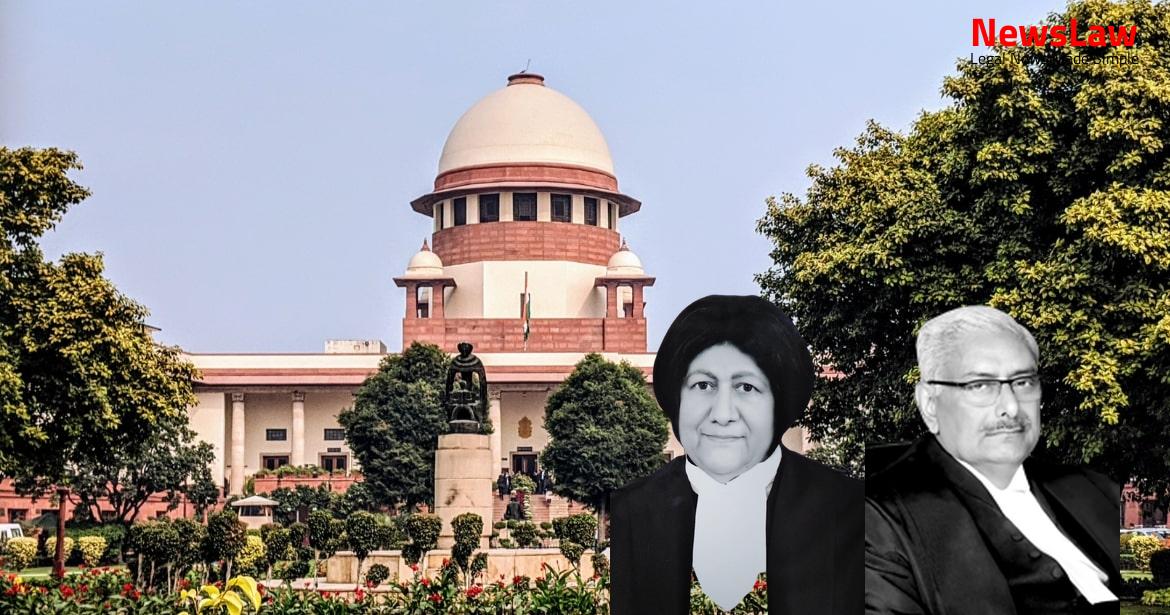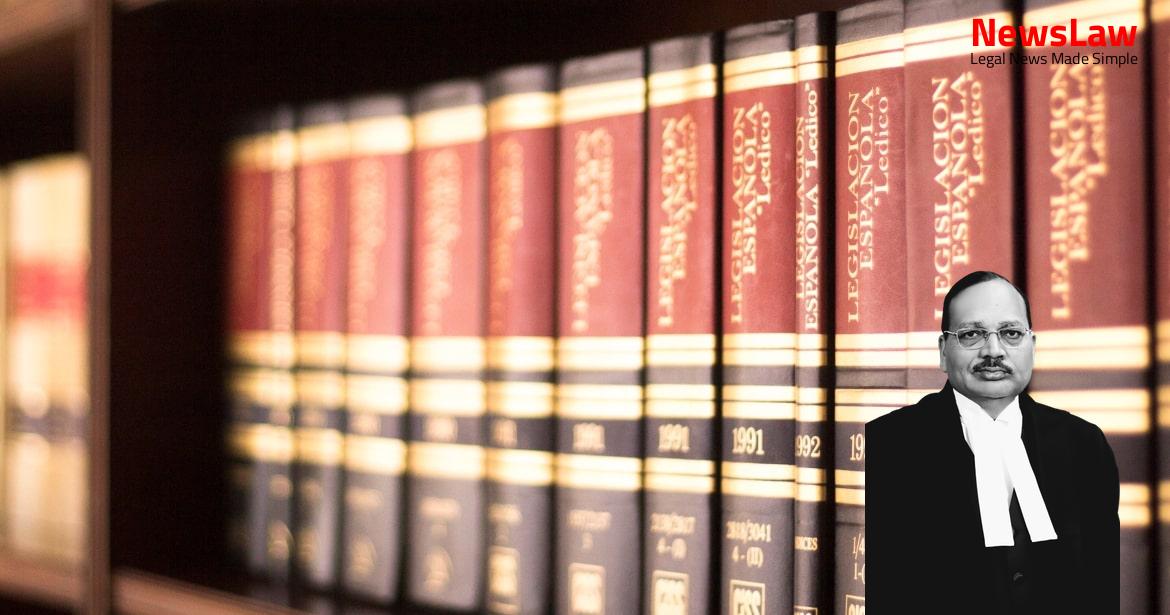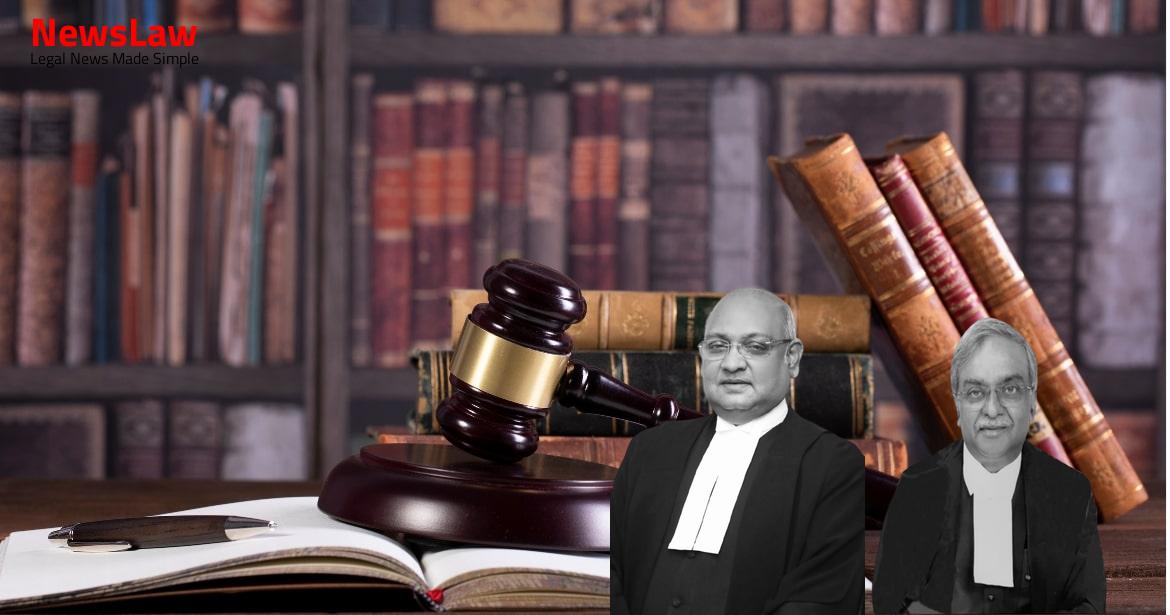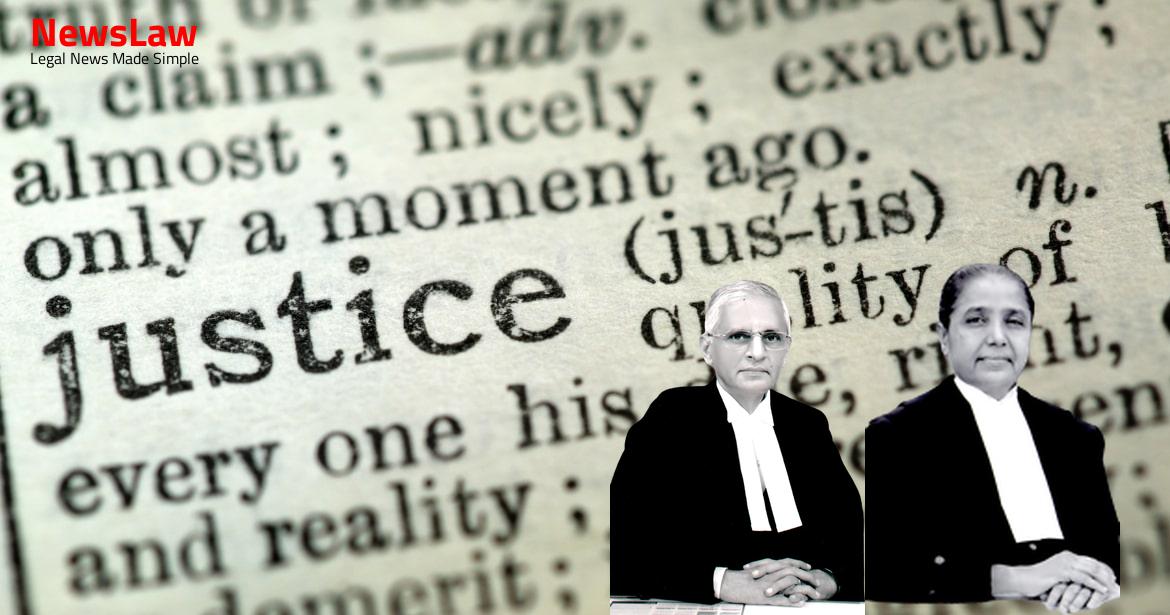The case involved a crucial legal analysis by the court regarding the limitation period in Insolvency and Bankruptcy Code proceedings. Understanding the significance of timelines in such cases is essential for both financial creditors and corporate debtors. The court’s decision sheds light on the intricacies of the law, ensuring fair and timely resolution of disputes within the IBC framework.
Facts
- The Respondents filed a petition under Section 7 of the Insolvency and Bankruptcy Code, 2016, claiming to be Financial Creditors of the Appellant Company.
- The NCLT dismissed the petition, stating that the claim was barred by limitation and the Respondents failed to prove a debt due from the Appellant Company.
- Details of payments made by the Appellant Company to the Respondents were meticulously recorded and presented as proof.
- The NCLT observed that the Respondents’ claim was not supported by evidence and the Appellant Company had discharged all liabilities.
- Allegations of forgery and fraud were not decided in winding up proceedings under Sections 433 and 434 of the Companies Act 1956.
- The Appellate Tribunal overturned the decision of the NCLT
- The appeal of the Respondents was allowed
- The order dated 19 December 2018 of the NCLT was set aside
- The application under Section 7 of the IBC was not dismissed
Also Read: Land Sale Dispute Legal Analysis
Analysis
- The Adjudicating Authority rightly rejected the application as barred by limitation.
- Operational creditor may deliver a demand notice of unpaid operational debtor on the occurrence of a default.
- A debt may not be due if it is not payable in law or in fact.
- If default has occurred over three years prior to filing the application, it would be barred under Article 137 of the Limitation Act.
- The application under Section 7 of the IBC must be admitted only if the claim is not ex facie barred by limitation.
- Default is defined as non-payment of a debt once it becomes due and payable, including non-payment of part or instalment.
- The adjudicating authority must communicate the order to the financial creditor and corporate debtor within 7 days of admission or rejection.
- In B.K. Educational Services Pvt. Ltd. v. Parag Gupta and Associates, the Supreme Court held that the right to sue accrues when a default occurs.
- The judgment in B.K. Educational Services Pvt. Ltd. was referred to and relied upon in Vashdeo R. Bhojwani v. Abhyudaya Co-operative Bank Ltd.
- In Innoventive Industries Ltd. v. ICICI Bank and Anr., the Supreme Court observed that when a default takes place and a debt becomes due but is not paid, the insolvency resolution process begins.
- Defines key terms related to the Insolvency and Bankruptcy Code (IBC) such as corporate debtor, creditor, debt, default, financial creditor, and financial debt.
- Specifies the obligations of a corporate debtor upon receipt of a demand notice from an operational creditor.
- Explains the definition of financial debt under Section 5(8) of the IBC.
- Clarifies that financial debt includes various forms of debts disbursed against the time value of money.
- Defines financial creditor as a person to whom a financial debt is owed, including assignments or transfers of such debts.
Also Read: Challenging Conviction: Legal Analysis Spotlight
Decision
- Shares of a company are transferable subject to restrictions in Articles of Association
- Shares attract dividend when the company makes profits
- The impugned judgment and order of the Appellate Tribunal is set aside
- Order of the Adjudicating Authority dismissing the application is restored
Also Read: Interplay of Limitation Act and IBC in Time-Barred Application Case
Case Title: M/S RADHA EXPORTS (INDIA) PRIVATE LIMITED Vs. K.P JAYARAM (2020 INSC 518)
Case Number: C.A. No.-007474 / 2019



